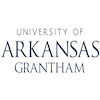Best Online Cyber Security Colleges
Get detailed information about best online Cyber Security colleges and their tuition, accreditation, career prospects, scholarships, admission details and much more
Online Cyber Security Colleges
Cyber Security program teaches a student about the ways and methods through which one can protect devices which are connected via the internet, including hardware, software, and data.
An Accredited Nursing School creates a pathway for the students to enrol in Cyber Security programs offered by the Colleges/Universities which are funded by the federal government or the state government.
The organizations that accredit Cyber Security schools and programs are listed below:
-
Higher Learning Commission
-
Applied and Natural Science Accreditation Commission (ANSAC)
-
Computing Accreditation Commission (CAC)
The subjects which are taught to the Cyber Security students are both theoretical and practical. Some of the subjects which are taught are Data Analysis, Cyber Defense, Cyber Threats, Fundamental Security Design Principles, Information Assurance Fundamentals, Intro to Cryptography, IT Systems Components, Networking Concepts, and System Administration.
An Associate’s degree in Cyber Security requires 60 to 68 credit hours to complete, which normally takes two years.
A Bachelor’s degree in Cyber Security requires almost 120 credit hours and takes four years to complete.
A Master’s degree in Cyber Security requires 36 to 54 credit points, which can be completed in two years.
A Doctorate’s degree in Cyber Security requires 60 to 64 credit hours, which can take three to five years to complete.
There are few requirements which need to be fulfilled before one applies for an admission in the cybersecurity program. The student should have a high school diploma with a minimum of 2.0- 3.0 GPA.
The Cyber Security program teaches an individual about the legal and ethical way of hacking and preventing any cyber threats, including computer coding and software languages.
Liberty University
Lynchburg, Virginia
Institution Type: Private Not-For-Profit
Cyber Security Accreditation: Request Info
Average Federal Student Loans awarded: $5,577
Average Student Loans Awarded: $7,005
Total Programs in Cyber Security (1)
1
Bachelors Program
Capella University
Minneapolis, Minnesota
Institution Type: Private For-Profit
Cyber Security Accreditations: ACBSP , ABET
Average Federal Student Loans awarded: $1,685
Average Student Loans Awarded: $1,685
Total Programs in Cyber Security (13)
6
Masters Programs
3
Graduate Certificate Programs
2
Doctorate Programs
2
Other Programs
Colorado Technical University (CTU)
Colorado Springs, Colorado
Institution Type: Private Not-For-Profit
Cyber Security Accreditation: Request Info
Average Federal Student Loans awarded: $6,603
Average Student Loans Awarded: $6,603
Total Programs in Cyber Security (8)
5
Bachelors Programs
1
Doctorate Program
2
Masters Programs
Drexel University Online
Philadelphia, Pennsylvania
Institution Type: Private Not-For-Profit
Cyber Security Accreditations: ABA
Average Federal Student Loans awarded: $5,681
Average Student Loans Awarded: $10,377
Total Programs in Cyber Security (5)
3
Masters Programs
1
Graduate Certificate Program
1
Bachelors Program
American Public University System
Charles Town, West Virginia
Institution Type: Private For-Profit
Cyber Security Accreditation: Request Info
Average Federal Student Loans awarded: $7,956
Average Student Loans Awarded: $7,966
Total Programs in Cyber Security (10)
3
Graduate Certificate Programs
2
Bachelors Programs
4
Undergraduate Certificate Programs
1
Other Program
Keiser University
Fort Lauderdale, Florida
Institution Type: Private Not-For-Profit
Cyber Security Accreditation: Request Info
Average Federal Student Loans awarded: $10,496
Average Student Loans Awarded: $12,144
Total Programs in Cyber Security (1)
1
Bachelors Program
Institution Type: Private For-Profit
Cyber Security Accreditation: Request Info
Average Federal Student Loans awarded: $8,029
Average Student Loans Awarded: $8,029
Total Programs in Cyber Security (5)
1
Bachelors Program
4
Certificate Programs
University of Phoenix
Tempe, Arizona
Institution Type: Private For-Profit
Cyber Security Accreditation: Request Info
Average Federal Student Loans awarded: $8,442
Average Student Loans Awarded: $8,453
Total Programs in Cyber Security (5)
1
Bachelors Program
1
Masters Program
2
Undergraduate Certificate Programs
1
Other Program







